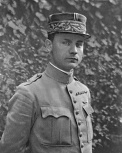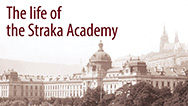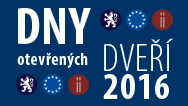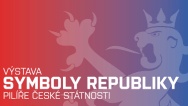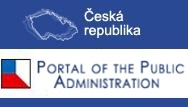Important personalities
13. 8. 2010
PhDr. Milan Rastislav Štefánik (scientist - soldier - politician)
Childhood and Adolescence
He was the sixth child of the total number of twelve children; six sons and four daughters out of them lived to see the adulthood. After graduation at the parochial school he was sent by his parents to a related family in Šamorín to learn Hungarian. It was necessary due to the further study because a secondary school with Slovak as a teaching language did not exist that time. In autumn 1890 he began to study at the Evangelic lyceum in then Pressburg (now Bratislava); it was the same school where his brothers Igor and Pavel had studied before and later also his younger brother Ladislav. Three years later he started studying at a grammar school in Sopron and finally he took school leaving examination at the grammar school in Sarvas in July 1898.
In autumn 1898 he enrolled at the Imperial and Royal Czech Technical University in Prague where he studied civil engineering. Two years later he transferred to the faculty of arts of the Charles-Ferdinand University where he studied astronomy and natural sciences. The period 1902-1904 he spent at research fellowship programmes in Zurich, Milan and Geneva; after his return, he finished his studies, defended viva voce and graduated in October 1904.
During his Prague studies, he became engaged in activities of the Slovak cultural community in Prague, he was a member of the society Detvan and wrote for magazine Hlas. Štefánik also established close contacts with a part of the Czech political scene concentrated around Tomáš G. Masaryk. When he was abroad, he wrote for their magazine Čas. He had several generous sponsors among Prague entrepreneurs who participated in funding his research fellowship programmes abroad.
Scientific Career
At the beginning of 1905 he left for France where he got remunerative job at then expert in the field of astronomy, professor of the Paris University Sorbonne Pierre J.C. Janssen. He directed activities of the astronomical observatory situated on the top of Mont Blanc in the Alps and he also made several scientific expeditions in various parts of the world. He visited Tahiti, Turkistan, Sahara, Brazil and Ecuador. Thanks to this, he gained fame in European scientific circles and at the end of 1911 he was given a prestigious award of the French Academy and in spring 1914, when he was already a French citizen, he was made a "Grand Officier" of the Legion of Honour".
By the outbreak of the World War I, he published tens of technical books which remarkably enhanced knowledge in the field of scientific astronomy. However, permanent work exertion during his journeys all over the world impaired his health. In spring 1914 he had to undergo a stomach operation. He was suffering from this disease throughout the World War I and for two times in autumn 1915 in Serbia and at the end of 1918 in Siberia he got at the point of death.
World War I
After the outbreak of the World War I, he speedily finished his scientific projects and in January 1915 he joined as a volunteer the French Air Force. At that time, unlike infantry, cavalry or artillery, his bad state of health was not an obstacle for doing service in the air force. He absolved a pilot training in Chartres and fighter training in Le Bourget. After joining troops he gained the lowest officer rank. Apart from air activities on the West European battlefield, he gained great fame among airmen and the command due to his successful weather forecasts. By summer 1915 he laid foundations of the military meteorological service in French Air Force and he also worked out first regulations. At the end of August 1915 he left, as a volunteer, for Balkan battlefield. However enormous strain during his air activities caused recurrence of the stomach disease. At the last moment, he was transported to Roma where he underwent a stomach operation.
At the end of 1915 he took longer sick leave and returned to Paris where he got information on the activities of Professor Tomáš G. Masaryk. Thanks to his acquaintances in the highest Paris circles, he mediated for Masaryk in February 1916 a meeting with the French Prime Minister Aristid Briand. A result of the meeting was the establishment of an executive organ of the compatriot and exile movement, the Czechoslovak National Council.
In spring 1916 he returned to the military service and for a short time he was as a fighter on the Italian battlefield where he was mainly engaged in the leaflet propaganda action aimed at Austria-Hungarian soldiers of Slavonic nationalities. In June 916 he was sent to Russia where he could link together his activities of a member of the French military mission and a delegate of the Czechoslovak National Council. In Kiev, he was engaged in negotiations of representatives of Russian compatriots and the exile centre, during the autumn journey to Romania he managed to recruit more than thousand volunteers for projected Czechoslovak military troops in France.
At the beginning of 1917 he got into a fierce conflict with the Deputy Chairman of the Czechoslovak National Council Josef Dürich who pushed ahead one-sided orientation of the Czechoslovak exile movement to the Russian Empire. This conflict was settled as late as in March 197 during the outbreak of the Russian revolution which swept the monarchy in Russia. However at that time, he already left Russia for France where he reported about his activities. Then he was commissioned to examine chances concerning recruitment of volunteers in Italy and in the United States of America.
In July 1917 he launched recruitment campaign among Czech and Slovak compatriots in big American cities; the campaign became fruitful as early as in spring 1918 when first volunteers arrived in France. At the end of the year, he returned to Paris where he participated in reaching an agreement between the French government and the Czechoslovak National Council on the establishing autonomous Czechoslovak military troops in the framework of the French Army. In spring 1918 he visited Italy where he managed to conclude an agreement with the Italian government concerning conditions of establishing military troops in the framework of the Italian Army. Concurrently, he was met by great life happiness when meeting marquise Giuliana Benzoni whom he intended to marry after finishing the war.
The Minister of War
In summer 1918 he left, together with the chief of the Czechoslovak Foreign Troops, General Pierre T.Ch.M. Janin, via United States of America and Japan for Russian Siberia, where, in the meantime, Czechoslovak military troops got control over the basic communication links and initiated general military actions against the Bolshevik government. During his journey he learnt that he had been appointed, after the official recognition of Czechoslovakia by allies, as the Minister of War of the Provisional Czechoslovak Government. After the declaration of independence and formation of the government in mid November 1918, this position was confirmed in the framework of the first Czechoslovak government of Karel Kramář.
After arriving to Siberia he, as the acting minister, reorganized Czechoslovak military troops which were withdrawn from direct military actions and began to guard rearward roads of the Siberian battlefield of the Russian Civil War. He succeeded in adverting great confidence crisis among volunteers who rightfully demanded return home to the free motherland. Concurrently, he overruled existing volunteer statute and established standards which were common in other armies. Because of recurrence of his stomach disease he had to leave Siberia and travelled to Shanghai and then to France. He tried to reach the earliest possible withdrawal of Czechoslovak military troops from Siberia back to the mother country. However, he got into fierce competence disputes with Edvard Beneš who, during his absence, had made an agreement on the future military subordination of newly established Czechoslovak army to the French command, which brought about fierce conflicts between French and Italian army representatives. In April 1919 he first left for Italy to negotiate and then he decided to solve the entire problem through personal negotiations in Czechoslovakia.
At the beginning of May, he set out for his last flight which ended in an air crash and his death as well as death of the entire aircrew. With regard to the fact that the air crash has never been properly investigated, the death of the only one Czechoslovak minister of war remains to be shrouded in mystery and it is often used by various extremists as a political propaganda.
